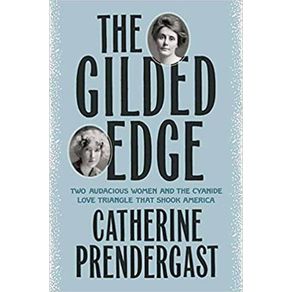THE GILDED EDGE
Favoritar
De: R$ 330,40Por: R$ 231,28ou de
Preço a vista:R$ 231,28
Economia de R$ 99,12Calcule o frete:
Para envios internacionais, simule o frete no carrinho de compras.
Calcule o valor do frete e prazo de entrega para a sua região
Sinopse
Ficha Técnica
Especificações
| ISBN | 9780593182925 |
|---|---|
| Subtítulo | TWO AUDACIOUS WOMEN AND THE CYANIDE LOVE TRIANGLE THAT SHOOK AMERICA |
| Pré venda | Não |
| Peso | 570g |
| Autor para link | PRENDERGAST CATHERINE |
| Livro disponível - pronta entrega | Não |
| Dimensões | 23.57 x 15.9 x 2.9 |
| Idioma | Inglês |
| Tipo item | Livro Importado |
| Número de páginas | 352 |
| Número da edição | EDIÇÃO - 2021 |
| Código Interno | 961377 |
| Código de barras | 9780593182925 |
| Acabamento | HARDCOVER |
| Autor | PRENDERGAST, CATHERINE |
| Editora | DUTTON BOOKS |
| Sob encomenda | Sim |

